第27章 CHAPTER XIX.
La Fontaine.--Boileau.--Moliere.--Corneille.--Louis XIV.'s Opinion of Each of Them.
The King's studies with his preceptor, Perefixe, had been of only a superficial sort, as, in accordance with the express order of the Queen-mother, this prelate had been mainly concerned about the health of his pupil, the Queen being, above all, desirous that he should have a good constitution. "The rest comes easily enough, if a prince have but nobility of soul and a sense of duty," as the Queen often used to say.
Her words came true.
I came across several Spanish and Italian books in the library of the little apartments. The "Pastor Fido," "Aminta," and the "Gerusalemme "seemed to me, at first, to be the favourite works. Then came Voiture's letters, the writings of Malherbe and De Balzac, the Fables of La Fontaine, the Satires of Boileau, and the delightful comedies of Moliere.
Corneille's tragedies had been read, but not often.
Until I came to Court, I had always looked upon Corneille as the greatest tragic dramatist in the world, and as the foremost of our poets and men of letters. The King saved me from this error.
Book in hand, he pointed out to me numberless faults of style, incoherent and fantastic imagery, sentiment alike exaggerated and a thousand leagues removed from nature. He considered, and still considers, Pierre Corneille to be a blind enthusiast of the ancients, whom we deem great since we do not know them. In his eyes, this declamatory poet was a republican more by virtue of his head than his heart or his intention,--one of those men more capricious than morose, who cannot reconcile themselves to what exists, and prefer to fall back upon bygone generations, not knowing how to live like friendly folk among their contemporaries.
He liked La Fontaine better, by reason of his extreme naturalness, but his unbecoming conduct at the time of the Fouquet trial proved painful to his Majesty, who considered the following verses passing strange:
". . . . Trust not in kings Their favour is but slippery; worse than that, It costs one dear, and errors such as these Full oft bring shame and scandal in their wake.""Long live Moliere!" added his Majesty; "there you have talent without artifice, poetry without rhapsody, satire without bitterness, pleasantry that is always apt, great knowledge of the human heart, and perpetual raillery that yet is not devoid of delicacy and compassion. Moliere is a most charming man in every respect; I gave him a few hints for his 'Tartuffe,' and such is his gratitude that he wants to make out that, without me, he would never have written that masterpiece.""You helped him, Sire, to produce it, and above all things, to carry out his main idea; and Moliere is right in thinking that, without a mind free from error, such as is yours, his masterpiece would never have been created.""It struck me," continued the King, "that some such thing was indispensable as a counterbalance in the vast machinery of my government, and I shall ever be the friend and supporter, not of Tartuffes, but of the 'Tartuffe,' as long as I live.""And Boileau, Sire?" I continued; "what place among your favourites does he fill?""I like Boileau," replied the prince, "as a necessary scourge, which one can pit against the bad taste of second-rate authors. His satires, of too personal, a nature, and consequently iniquitous, do not please me.
He knows it, and, despite himself, he will amend this. He is at work upon an 'Ars Poetica,' after the manner of Horace. The little that he has read to me of this poem leads me to expect that it will be an important work. The French language will continue to perfect itself by the help of literature like this, and Boileau, cruel though he be, is going to confer a great benefit upon all those who have to do with letters."